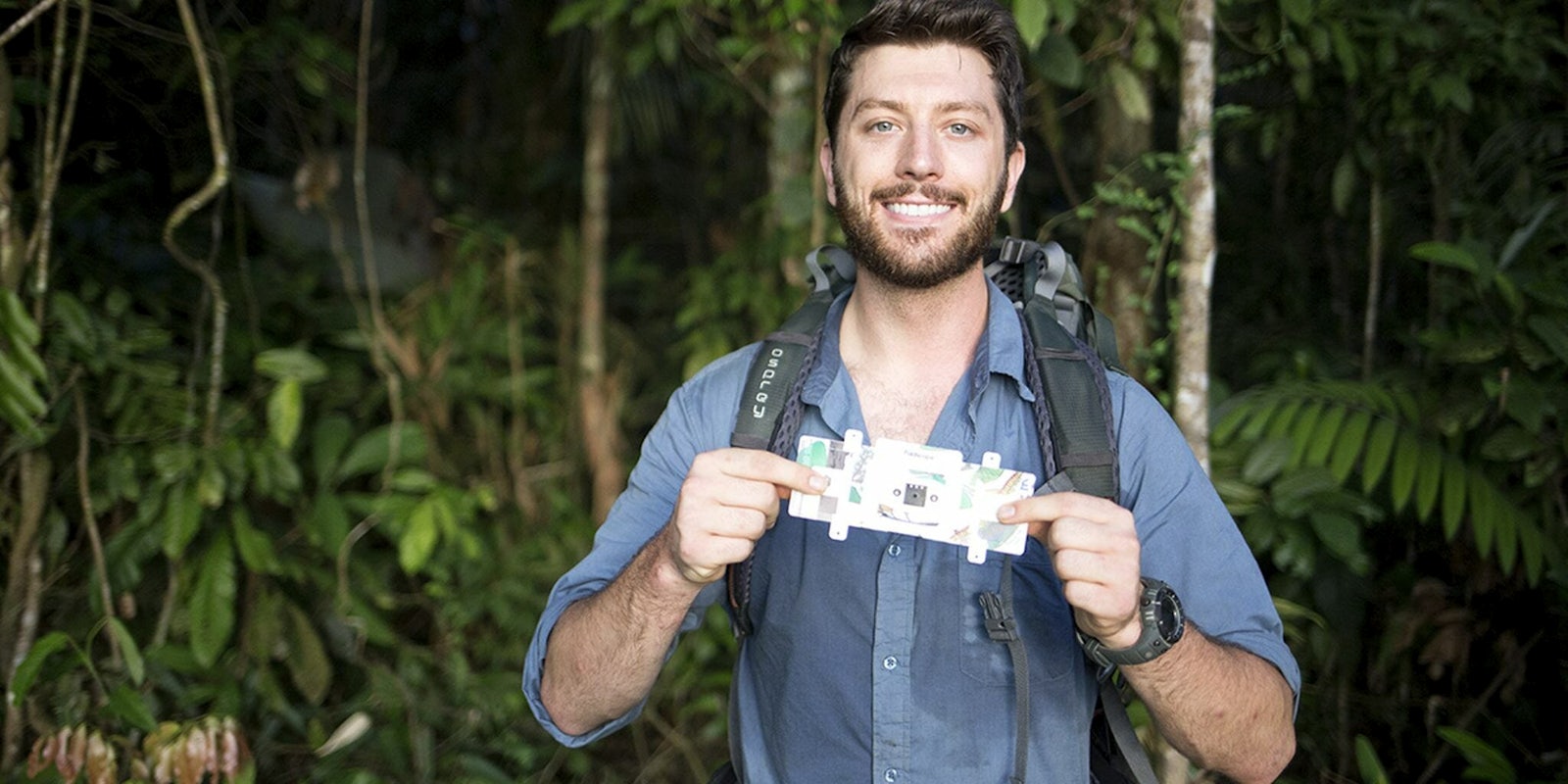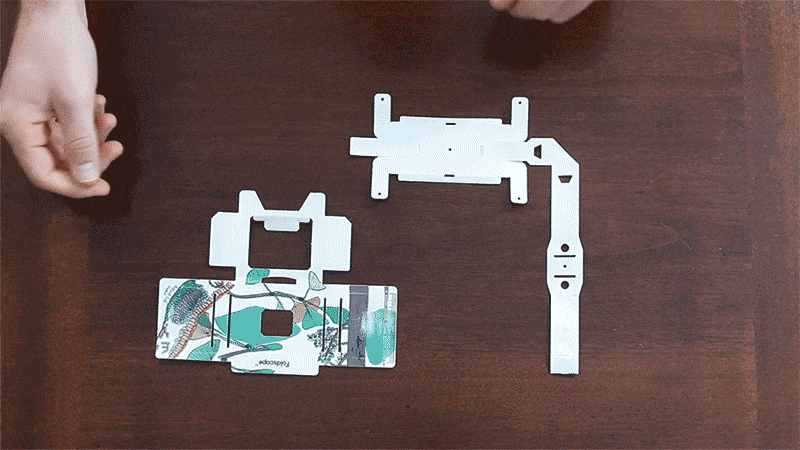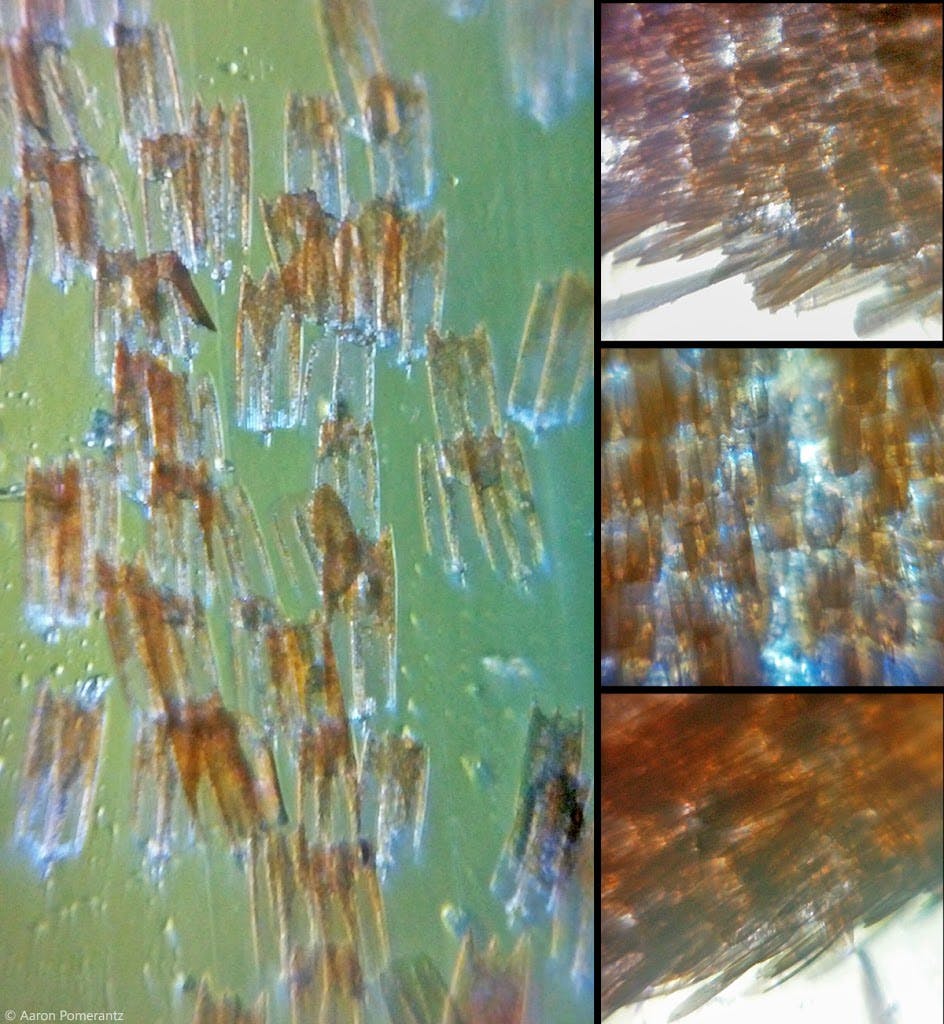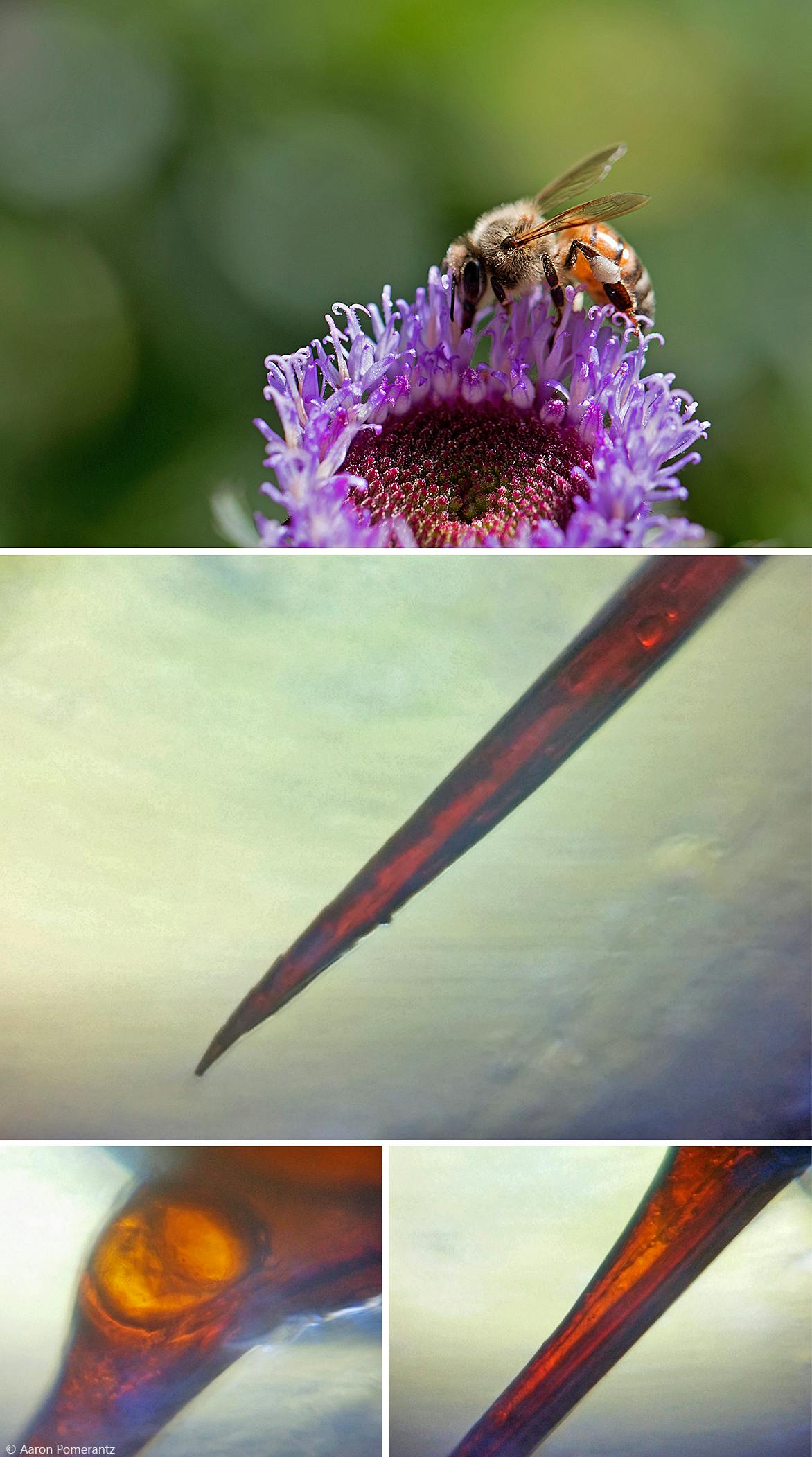The most sophisticated new microscope design is made out of paper and plastic.
The Foldscope is a flat-pack microscope that, after a quick origami-like folding session, becomes a sturdy imaging device that can magnify something a number of times using natural sunlight.
This brings higher-level imaging capabilities to scientists in the research field like never before. The Foldscope handily demonstrates magnifying an image 2,000 times, but other portable microscopes are far less travel-friendly and may only magnify up to 250 times, often even requiring electricity to do so.
Foldscope solves science’s problem of needing to be able to zoom in when it really matters, and given its component materials, it’s cheap and easily replaced.
Field biologist Aaron Pomerantz is a big fan of the gadget, which has already impacted his work. “In some cases, you get back to the lab and wish you had done something different in the field like made more collections or made more observations, for example, if only you had seen it under a microscope in real-time,” he told the Daily Mail. “The Foldscope gives you that immediacy in the field to investigate your subjects and you can then take them back for more detailed work in a lab.”
Pomerantz took the Foldscope with him on a trip to the Amazonian rain forest to study arthropods like the glow worm and tentacled caterpillar—he shared the visual results of his trip through Microcosmos, the recently launched community for sharing pictures taken through a Foldscope. Here’s how the rough-and-tumble scientific instrument handled the hot, humid stresses of real jungle field work:
The Foldscope was invented by Manu Prakash of Stanford University. “I wanted to make the best possible disease-detection instrument that we could distribute almost for free,” Prakash said in a Stanford blog post last year. “What came out of this project is what we call use-and-throw microscopy.”
This drastically reduced barrier to entry for looking at things up close means the Foldscope stands to become a great educational tool at the same time.
Foldscopes are not yet available for purchase, but the team is “working hard to make the microscopes commercially available via a spinoff/startup.” There’s no public timeline on when this will happen, but that hasn’t made Pomerantz any less enthusiastic about his favorite optical tool.
“What makes [the Foldscope] revolutionary is that it works, say at detecting disease-causing agents or investigating unknown species in the field, and costs less than $1,” he said. “This allows it to scale-up and potentially reach millions of people including children, health care workers, and field biologists, who may not have immediate access to a microscope otherwise.”
Microscope aesthetes who require glass and metal to do their work need not apply.
H/T Daily Mail | Photo via Aaron Pomerantz/Microcosmos






